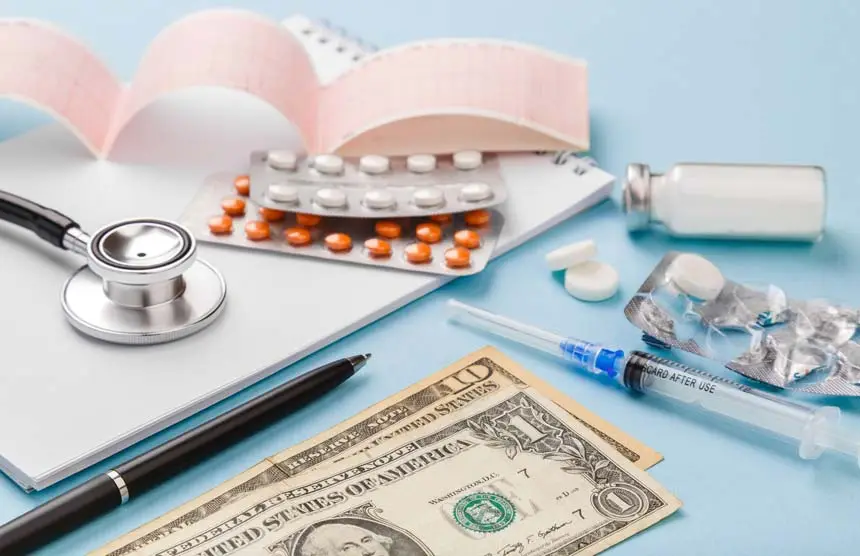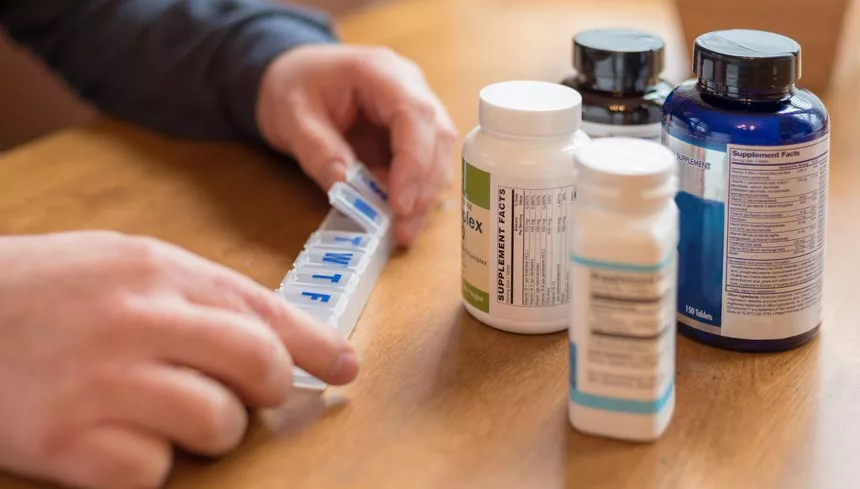What Exactly Is Meth?
Table of Contents
Methamphetamine is a powerful stimulant that affects the brain similarly to other drugs like cocaine or heroin. Methamphetamine is illegal and highly addictive. It’s often made in large quantities in secret laboratories and then smuggled for sale on the streets. The most common type of methamphetamine is crystal meth or “ice.” This form of meth looks like glass fragments or crystals and can be smoked or injected into a vein (IV). There are also pill forms of methamphetamine that people can swallow or snort up their noses.
‘’How do you detox from meth” is one common question many meth users ask. This is because meth is a powerful drug. One hit and users begin to chase the feeling relentlessly, a phenomenon called “chasing the dragon.” This is where a habit of substance abuse is developed. Despite the pleasure many users feel, addiction to meth is challenging. The powers of the synthetic drug can almost rewrite the chemistry of the brain.
Long-term meth abuse can come with a host of issues. This is true of all substance use disorders. The truth is that the long-term effects of chronic meth use can be devastating. The good news is that years of research have helped rehabilitation centers develop effective meth addiction treatment offerings.
Keep reading, and in this article, we will fully discuss them and everything else you should know about treating meth addiction.
The Cost of Methamphetamine Addiction
Long-term meth addiction has been associated with cognitive impairment as well as behavioral changes such as irritability, anxiety, and paranoia. Methamphetamine use can also cause serious physical health problems such as:
- Brain damage
- Decreased appetite
- Cardiovascular issues
- Excessive weight loss
- Poor skin health
- Severe dental problems may lead to tooth decay and infection (This is commonly known as “meth mouth“)
Methamphetamine use disorder can also have intense withdrawal symptoms. For anyone who might decide to retake control over their life from the debilitating substance abuse habit, the first hurdle they will encounter are the withdrawal symptoms associated with halting chronic drug use. Because methamphetamines are so addictive, over prolonged use, the body becomes accustomed to the presence of the drug and begins to depend on it. When this is no longer present, the body rebels. Thus, withdrawal symptoms.
The most common symptoms of withdrawal from methamphetamine are:
- Tremors, shakes, and involuntary muscle movements (known as “tweaking” or “crashing”)
- Insomnia
- Depression
- Anxiety
- Mood swings
- Intense craving for the drug (known as “the meth munchies”)
Withdrawal typically begins within 24-72 hours after the last dose of methamphetamine. The symptoms peak between days 3 and 5, then gradually subside over 2-4 weeks. This is why seeking substance abuse treatment as soon as possible is critical for those struggling with a habit of meth abuse.
Meth Addiction Treatment Options
The road to a sober life starts with detox and then treatment. It is a set of efforts formulated to help you return to a life without meth. During this process, treatment could also cover other conditions that might be contributing to the addiction. The truth is that a medically supervised detox is but the first step.
Meth treatment is a multi-layered process. Medical detox is a necessary step, but it is just the start. Researchers found that for the vast majority of cases, substance use disorders are a symptom of a deeper underlying issue. In fact, for many, there are co-occurring disorders that have led the person towards meth use in the first place, as a means to try to cope and self-medicate.
The presence of mental health issues is perhaps one of the greatest risk factors for meth abuse. This can range from depression to PTSD, to acute trauma. It should be noted as well that neurodivergent persons, such as those with attention deficit hyperactivity disorder (ADHD) may also struggle with substance abuse due to an attempt to self-medicate.
Listed below are a few meth addiction treatment options that you can try in your recovery. You don’t have to use one. Combining different options can be effective in overcoming the demon. Combining support groups with mental health services and behavioral therapies has statistically been seen to be highly effective at treating methamphetamine addiction.
Behavioral Therapy
Effectiveness is the goal when it comes to meth addiction recovery. There is none currently more effective than behavioral therapy. It is widely considered the best treatment for meth addiction. Therapy is so effective that other forms of treatment are either a variation or a combination of it with another plan.
Cognitive-behavioral therapy involves learning about the fundamental conditions driving a user’s predisposition to drugs. It focuses on helping you develop healthy ways to deal with the urge to take drugs. You will work with a licensed therapist trained to teach you these coping strategies.
As simple as it might seem, behavioral therapy has proven effective when reducing meth consumption, even with few sessions.
The Matrix Model
Numerous studies have shown that behavioral therapy is effective at helping people struggling with methamphetamine addiction. On its own, it has no set duration. The duration of treatment depends entirely on the severity of the addiction.
However, the Matrix Model takes a hurried approach to behavioral therapy. It is a sixteen-week program designed to help meth addicts seize control within a short period.
The model combines regular behavioral therapy with drug testing, the 12-step program, counseling, and family education. It also involves the promotion of activities that are not drug-related.
This 16-week program usually happens in an inpatient meth rehab. Though not recommended, accommodations can be made for outpatient forms of the treatment too.
Medication Management in Meth Treatment
Medication is not the most effective treatment for methamphetamine addiction out there. Still, there are promising medications and medical treatments. Several of them are currently in development with positive results from clinical trials.
The trials show that the antibodies found in anti-methamphetamine monoclonal can reduce or slow the effects of meth in the brain. Ibudilast, another medication for meth addiction, can dull the pleasurable feeling meth gives to addicts.
Naltrexone, a drug used to treat alcoholism, has also proven to be helpful in recovering from meth addiction. According to a controlled study, the drug can reduce meth cravings and change how former meth users respond to the narcotic.
However, this is still a developing treatment option. There is no drug that targets the specific effects of methamphetamine or prevents misuse with prescription assistance.
Contingency Management Intervention
The last treatment option aims to wean an individual off meth and help them get their life back on track through motivational incentives. Contingency Management Intervention treats meth addiction by driving motivation for sobriety through practical rewards. It aims to teach recovering addicts that they can abstain from meth and other harmful drugs through self-control.
The treatment combines behavioral therapy with motivational incentives referred to as Motivational Incentives for MIEDAR (Enhancing Drug Abuse Recovery). Recovering addicts who partake in this mode of treatment have a set period where they must go without using meth. When they meet this goal, they receive a prize or voucher. The longer they go without using meth, the higher the value of the reward or voucher gets.
Studies conducted by the National Drug Abuse Clinical Trials Network (NIDA) showed meth users responded better to reward than punishment. It also showed that recovering addicts who use this treatment option are more likely to remain in counseling and achieve long-term abstinence.
Things to Expect in a Meth Addiction Treatment Center
As hard as stopping meth is, it is not impossible to quit cold turkey without the help of trained professionals. But it is not as safe as seeking the help of trained professionals at a hospital or meth addiction treatment center. Treatment centers are well-equipped to handle all types of cases.
Also, the long-term care offered for meth addiction is more effective. The National Institute of Drug Abuse recommends a minimum of 90 days in a specialized treatment program.
But if you are going to enter drug rehab, you should know what to expect. Those who understand the program and what it entails are more likely to finish and get their life back in order.
Here are eight things to expect in a meth addiction treatment center.
A Check-in Process
The first thing you have to prepare for when you enter a meth addiction treatment center is the check-in process, also known as the intake assessment. It is your first step in getting treatment, and it involves answering questions about your use of meth.
These questions require complete honesty and can be in the form of an oral interview or questionnaire. A sense of reluctance to share the truth is expected during this stage. Either because you or the individual is not prepared to admit the nature of their drug usage. Or, they are uncomfortable sharing it with a stranger.
However, it is in your interest to answer truthfully. The information collected is essential in crafting an effective personalized treatment plan for your physical and psychological needs.
A Detoxification Period on Meth Addiction Treatment
After completing your evaluation, the detox process will begin. During this phase, a medical team will be on hand to make you more comfortable. Information collected during intake assessment will help medical staff provide the necessary detox treatment. This might include the use of medications like bupropion and modafinil to manage your symptoms.
After detox (which can last up to a month) is complete, you will transition to the next stage of meth addiction treatment.
An Early Start to The Day
Post-detox treatment is all about equipping you with helpful strategies to overcome your meth addiction for the long term. It means developing positive habits, such as waking up early and eating a healthy breakfast. It is especially valid if you are in the inpatient program, i.e., staying at the treatment facility.
During your stay, you will be on a strict schedule that includes early morning breakfasts and medications (if you are on any). This session might include yoga and meditation classes to help you clear your mind for the day ahead.
Going from your typical daily routine to this is likely to be challenging. There will be moments of resistance, and you might need time to acclimatize. It is entirely normal. Just remember that they are necessary to help you cultivate a healthy way of life.
Lots of Individual Therapy
During your stay at a meth addiction treatment center, you will spend a lot of time talking to counselors or therapists. Although there might be overlap, individual therapy begins after you have physically recovered from the symptoms of withdrawal.
After that, treatment will focus on the underlying psychological conditions that contributed to the addiction. During this phase, you and medical professionals will determine the best treatment option to combat the addiction. It could be cognitive behavioral therapy, the matrix model, or contingency management intervention, or a combination of any of them.
Therapy typically occurs in the therapist’s office. It could also happen in a different location, as long as it is private. Also, it could be a daily or weekly exercise. Schedules usually depend on the recommendations of the therapist.
Group Therapy for Meth Addiction Treatment
Cognitive therapy is heavily part of meth addiction treatment. Besides individual and family therapy, you will also undergo group therapy. It is a form of therapy that involves working with a therapist alongside several individuals at a time.
It serves different purposes during treatment. For one, it helps you forge a bond with other people facing similar struggles. It can provide mutual strength to stick through treatment and reduce the loneliness commonly felt during this time.
Secondly, it is a way to find accountability partners who can help you stay sober, especially after leaving the facility. They serve as inbuilt social networks that recovering addicts can rely on after completing the treatment program.
Lastly, group therapy can be beneficial in acclimatizing to sharing in individual sessions. Spending sufficient time listening to the personal stories of others can inspire others to share their own stories.
As part of daily treatment schedules, group therapy usually occurs in the evening. But it can be different from one facility to another. It can also be mandatory or optional, but it is generally recommended.
Free Time to Unwind
In between all of the above-listed activities is free time. This is your time to unwind and develop ideas on how you want to engage yourself after treatment. This period is usually in the afternoon, and you can spend it as you wish.
Activities you can participate in depend in large part on the infrastructure available at the facility. High-quality treatment centers have soccer pitches, swimming pools, or volleyball/basketball courts. Some activities require little to zero physical space like board games and ping-pong.
These activities involve hanging with others. If you prefer spending your free time by yourself, you can also write, read, or do some journaling. However, residents are encouraged to participate in communal activities. It helps to strengthen the bond between patients and improves the effectiveness of therapy.
Additionally, you can use it to practice or acquire productive skills that provide structure and a healthy routine after completing your treatment.
Post-treatment Preparation
Life in a meth addiction center is effectively a form of isolation from the rest of the world. When the program ends, transitioning back to regular daily life can be scary and compromising. For this reason, meth addiction treatment centers invest substantial time into preparing residents for life after.
A fraction of this preparation comes from daily practices and therapy sessions. There are also dedicated resources explicitly designed to cater to this purpose. They include:
- References to local Narcotics Anonymous or Crystal Meth Anonymous organizations
- Practical tools to avoid and overcome meth triggers
- Ways to develop and maintain accountability partners
Other forms of preparation could also include transitional housing if your environment is a meth trigger. Medical evaluations and temporary job opportunities might also be part of the package to keep you busy until you get back on your feet.
Post-treatment preparation could also include alumni support programs, and some centers collect information to maintain connections with former residents.
Meth Addiction Treatment: Found Here
The effect of methamphetamine makes it a hard drug to quit. The dopamine effect hijacks control of a person’s brain with a single hit, forcing the user to chase the euphoria endlessly. It leads to repeated use and eventually makes it difficult to withdraw from meth.
However, treatment for meth addiction comes with many options for fast recovery. They range from cognitive behavioral therapy to contingency management intervention. Whatever option you choose, treatment starts with detox, and it can be a harrowing and dangerous experience.
That is why it is advisable to undergo meth withdrawal under the watchful eye of medical professionals in treatment centers. At Find Addiction Rehabs, we are here to help you find the best treatment for meth addiction. Our team has a national database of meth addiction treatment centers. We can find the one that suits your personality and physical and psychological needs.
With years of experience combined with modern facilities, they are well-equipped to provide comprehensive care. They can also provide diagnosis and treatment for other mental health disorders.
There is no need to wait for tomorrow. The road to recovery and getting your life back on track begins today. Let us help you take that first step and give you and your loved ones the healthy life you desire.
Call us today for more information about our services and other resources about addiction treatment!
Bryan was born in Philadelphia and remains an ardent supporter of Philadelphia sports. After attending FSU and FAU where he majored in writing, Bryan ventured out to follow in the footsteps of his idols, running straight into drug addiction. After being arrested by the President’s Secret Service, Bryan finally started to rebuild his life and beat that monkey off of his back through writing, playing music, and studying Buddhist philosophy.
Despite still having the occasional struggles with mental health, Bryan strives to be a little bit better a person each day. With the support and love from a loyal family, and kind-hearted and generous friends, Bryan tries to help people vanquish their own personal demons as he did and bring more love and beauty into a pessimistic world.






